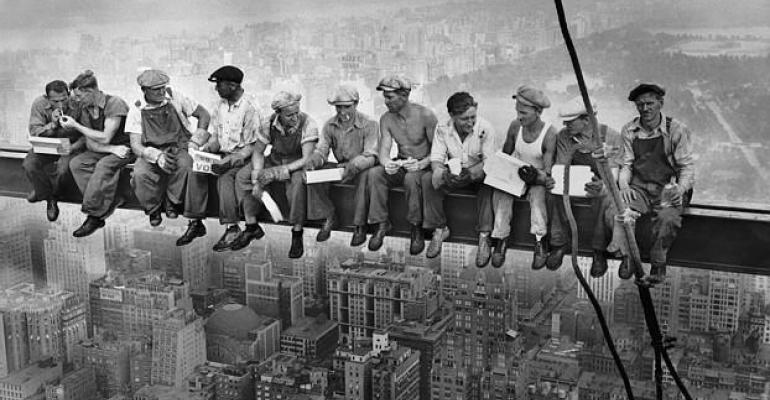
The New York Times' only observation is to put a populist angle on lower bank-lending. Here is the lead on the story: "As many households and small businesses are being turned away by bank loan officers, large corporations are borrowing vast sums of money for next to nothing — simply because they can." The inference is that companies are getting access to cash at the expense of the little guy. Actually, it's not banks lending to corporate America, it's the bond market, which is lending at absurdly low interest rates. (See Charles Schwab's opinion piece this weekend in the Wall Street Journal on why the Fed should raise interest rates, to wit, "Fed policy punishes savers without making credit more available.")
The article doesn't mention why corporations and banks are hoarding cash. Banks are hoarding cash because it'll be some weeks before the recently passed "FinReg" rules are vetted. The Dodd-Frank legislation, passed in July, is the most sweeping regulatory overhaul since the Great Depression. It calls for a series of new rules that has investors pricing many banks below the cash on their balance sheets. Future profitability of banks is highly uncertain, because of the Volker Rule, which limits how much banks can invest in hedge funds, derivative trading and other "risky" endeavors. (The big banks might also be hoarding cash to snap up the smaller ones, the ones who are still, even now, starved for capital; other corporations might be building cash to buy other ailing companies' assets and intellectual property.)
Corporations are hoarding cash because executives are worried about what's coming down the pike from Washington in the form of new restrictions and obligations. In yesterday's New York Post, Senator james Inhofe (R-OK) wrote: "Congress bears much of the blame -- especially for the new "financial reform" law, which leaves so many details to be filled in later. But a major contributor to businesses' worries is the Obama Environmental Protection Agency, which is issuing a daily barrage of rules and regulations threatening jobs in American industry."
You've got the unkown fallout from ObamaCare, the EPA's new regs on saving the ozone and etc. All this leads to undertainty. For example, according to Sen. Inhofe, the EPA's proposed rules for industrial boilers could cost 800,000 jobs. (He was quoting a study by IHS-Global Insight, a consulting firm.) Sounds too doomsday-ish for me, but, alas, fear --- even wild conspiracy theories --- certainly can dampen econimic activity.
The same thing happened with FDR's New Deal. It was such an overarching intrusion into the private sector that companies (and individuals) began hoarding cash because they weren't sure which new alphabet program was coming next and what that would mean to their businesses. For more, see Amity Shlaes history of the New Deal, The Forgotten Man.

